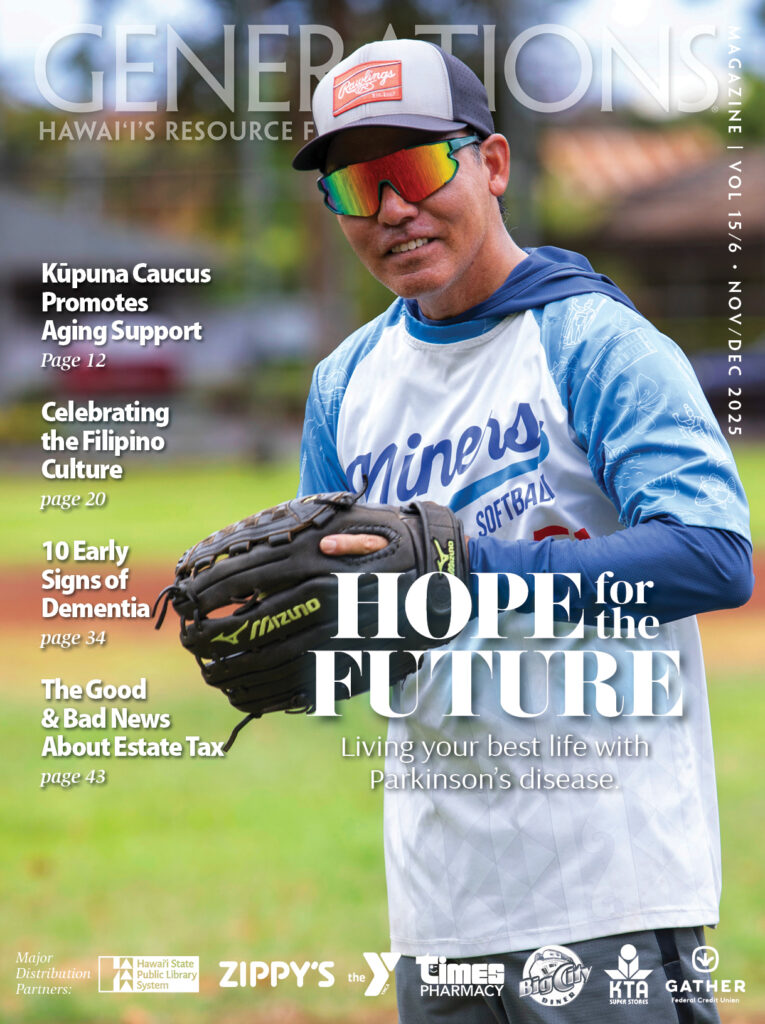Our community is facing a crisis, most recently evidenced by the Karen Okada case. The local news recently exposed this crisis, reporting that Ms. Okada made a living will in 1998 where she stated that she did not want her life to be “artificially prolonged” at “end of life.” The Queen’s Medical Center clinicians diagnosed Ms. Okada as being in a persistent end-of-life vegetative state, and that the feeding tube should be removed in accordance with her wishes. Ms. Okada’s family, however, felt differently and did not want the feeding tube removed. This case ended up in court, making this very private family matter public. The crisis lies in the fact that many people, such as the Okada family, are not prepared for the end-of-life process. Unfortunately, as a result, patients’ dying wishes are often not upheld and many family members experience anxiety, depression and regret during and after the loved one’s death.
Statistics reveal that only about 25 percent of adults ever make an end-of-life decision. Consequently, many family members suffer from post traumatic stress because they feel as though they were responsible for making the end-of-life decision for their loved one. Some experience conflict with other family members as ideas about care differ, while others suffer because they were not clear as to what their loved one’s wishes were about end of life.
For those clients who do document their decisions, only about 30 percent of advance directives are honored by family members and medical facilities.
While filing an Advance Health Care Directive in your medical chart is recommended, the medical community and legal community must ensure that patients and clients will receive:
- dignity, respect and quality care
- comfort and peace of mind that their choices will be honored
- help though the end-of-life process, with the least amount of stress and anxiety as possible
It is time for our community to come together and offer an Advance Care Planning system where:
- information is shared so that clients can make informed decisions
- choices are discussed with loved ones, care providers and legal advisors
- decisions are documented and stored so that they are easily retrievable when necessary
- plans are viewed as a process and revisited from time to time
Statistics from communities that have adopted this type of planning are positive. Close to 90 percent of the patients made an Advance Health Care Directive, and 86 percent of the directives were honored by family and medical facilities.
Encourage our community leaders — medical, legal and financial professionals, business leaders, educators, the political and spiritual leaders, and non-profit organizations—to work together to create a uniform advance care planning process for all of Hawaii.


Leave a Reply